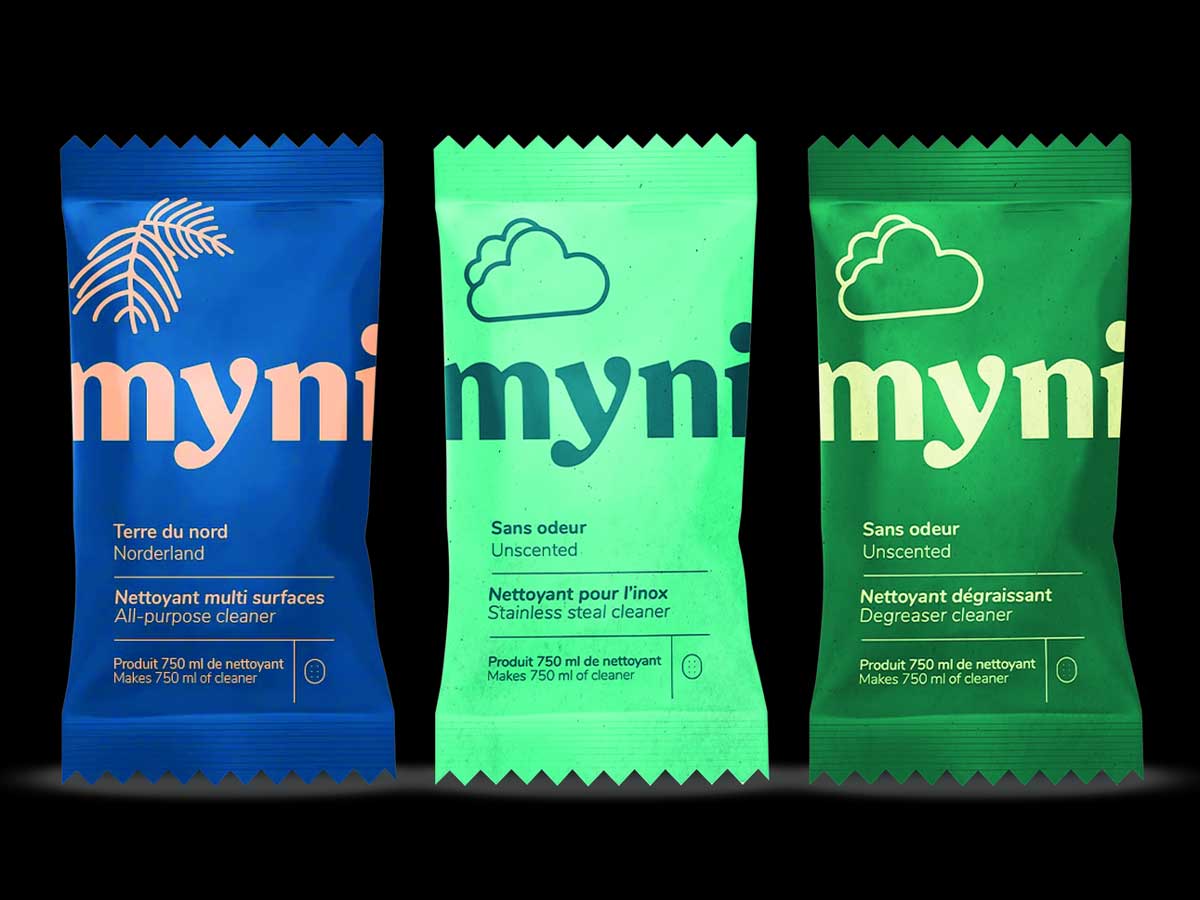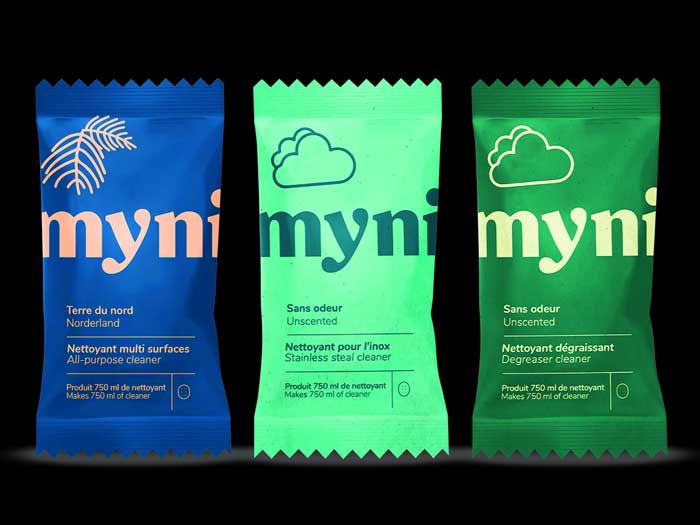
Meet the CPA leading the zero-waste cleaning product revolution
 CPA-led MYNI specializes in zero-waste cleaning products
CPA-led MYNI specializes in zero-waste cleaning products
It began when Marie-Hélène David found a crack in the plumbing under the sink due to rust and corrosion from cleaning chemicals. David, a CPA and entrepreneur, was pregnant with her second baby at the time, and the discovery drove home how toxic some household products are.
Out of concern for her young family, she says, “I started to make my own cleaners at home,” planting the seed for what would eventually become a low-waste cleaning products company called MYNI.
David began developing the business during her maternity leave. It launched a year later in 2020, during the early days of COVID-19.
“It happened really fast because I started really small,” says David, who launched with two products: an all-purpose cleaner and another specifically for glass and mirrors.
Working with a team of five chemists, David—a former Dragons’ Den contestant who got a deal for a previous handbags venture—has developed five household cleaning products, including hand soap. She is planning to launch 12 more products this year, including dishwasher and laundry soap.
The products in MYNI’s line are sold in tablet form and come in biodegradable packaging. Concentrated to the size of a quarter, they turn into cleaning solutions when dissolved in water. (The company also sells glass spray bottles to dispense its solutions.) They’re made using 1,000 times less energy than typical cleaning products; the concentrated tablets take up less weight and space during transportation—as much as 95 per cent less according to MYNI—which helps reduce carbon emissions. The principal aim, David says, is to reduce the transportation of water and the use of plastic bottles.
In Canada, dozens of similar zero-waste retailers have emerged in recent years. While their origin stories vary, it isn’t difficult to understand the motivation behind them. Plastics from packaging account for 47 per cent of all plastic waste in Canada, according to a report commissioned for Environment and Climate Change Canada. According to the Government of Canada, one garbage truck’s worth of plastic waste ends up in the ocean every minute. Under the government’s Ocean Plastics Charter, it plans to stamp out plastic waste, starting with a ban on certain single-use items like grocery bags, cutlery and six-pack rings on drinks beginning sometime this year. The aim is to recover 100 per cent of all plastics by 2040.
Meanwhile, upstarts like MYNI are already capitalizing on a shift in consumer awareness. Eco+amour, a Scarborough, Ont.-based refill boutique that opened its doors in 2018 and sells online and through kiosks at retailers in Ontario and New Brunswick, has developed a line of refillable and biodegradable liquid soaps, shampoos and dishwasher soap, along with “crush and brush” toothpaste tablets and face mask powders that come in small water-soluble capsules.
“One of [our] biggest differentiators . . . is that we make our products on site [at our Scarborough location],” says co-founder Sarah Marcus. She develops them with her business partner, Laura Craig, a U.K.-trained formulator, along with a chemist.
According to Marcus, 98 to 99 per cent of eco+amour customers bring their own bottles to refill. The company also carries some two dozen local brands that share the same environmental ethos on developing low- to zero-waste products.
Bigger players, like B.C.-based Tru Earth, have already demonstrated the market demand for such eco-friendly products. Named Canada’s second fastest- growing startup by Canadian Business in 2020, the company says it was serving 200,000 customers across 52 countries within 18 months of launch in 2018. Today, its products are sold by a range of retailers including Indigo, Sobeys and Home Hardware. Similar competitors, including Cleancult and Blueland, are also expanding their footprint into Canada.
For MYNI, a company that started in David’s kitchen, growth happened quickly, despite the pandemic. Her tablets are sold online and can be found in retail chains like the Quebec pharmacy Jean Coutu, along with 300 additional retailers across the Americas and various locations in the U.K., Japan and the United Arab Emirates. She has a goal of selling through 1,000 shops in Canada by summer.
Launching MYNI online wasn’t in David’s plan at first, but the pandemic forced her to change tack. The timing worked in the end; everyone was home and cleaning. And, with direct contact and feedback from online customers, the company was able to refine its formulations in the first year—all toward the goal of what David calls “a better balance” for her company and the cleaning market as a whole.
GREEN VISIONS
Read about the designers using produce to make their bags, the e-motorcycle startup focused on safety and the vegan outerwear brand prioritizing sustainability.